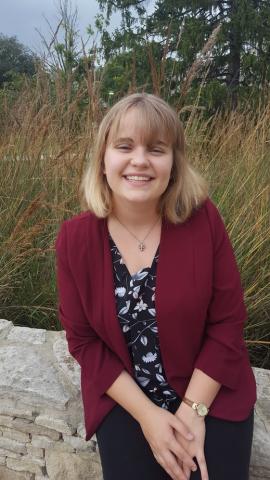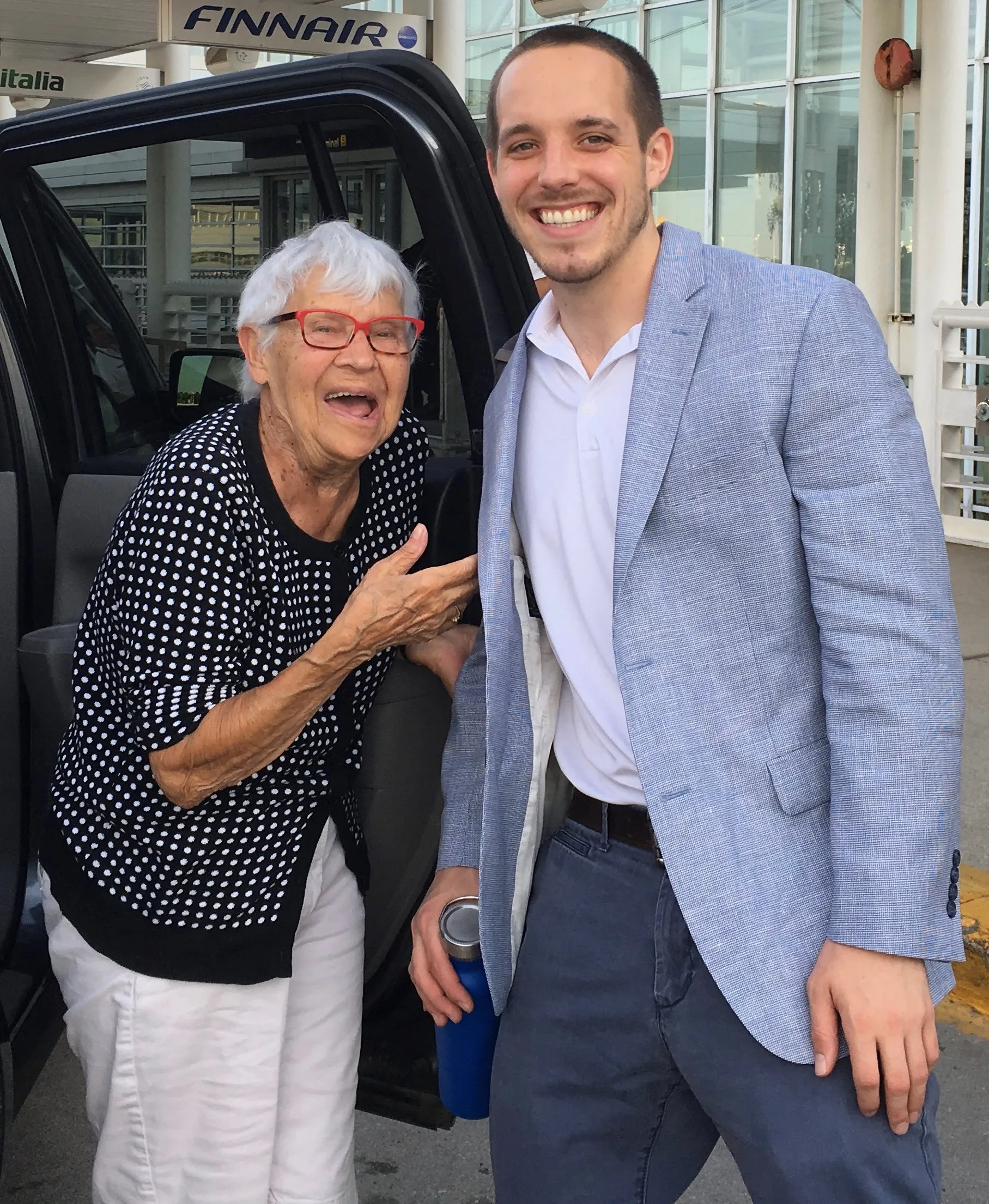Making Law Accessible and Using All the Tools in the Toolbox
Editor's note: The Pro Bono Board, a student group committed to expanding pro bono knowledge and opportunities to students, names a Pro Bono Volunteer of the Month. November’s honoree is Emma Sperry, JD/MPP ’21. Whittney Barth, ’19, a member of the board, wrote this story on her work. For more information on pro bono work, visit the Pro Bono Service Initiative website or contact Nura Maznavi in the Office of Career Services.
For Emma Sperry, JD/MPP ’21, making law accessible and equipping people to be their own advocates are not just worthy goals—they are a passion and a necessity.
Sperry’s pro bono commitments reflect this conviction. During her 1L year, she participated in a number of pro bono projects, including legal aid clinics hosted by Legal Assistance Foundation (LAF), will-preparation workshops with Wills for Heroes, and a prison letter-writing campaign sponsored by the National Center for Lesbian Rights. She also worked closely with an LAF attorney to develop a user-friendly guide to SNAP benefits. During 1L Spring Break, she volunteered with Community Action Law Alliance (CALA), a legal non-profit in Chicago that works on immigrants’ rights issues.
While volunteering with CALA, Sperry remembers working on a brief that involved researching at least five legal issues. Although daunting even for an advanced law student, she describes it as “all good experience.” As a 1L “the biggest challenge was figuring out how to use Westlaw,” she explains with a smile. Sperry appears to have taken it all in stride: a necessary tangle to work through to achieve her main and constant objective—helping others.
During her 1L summer, the diversity of Sperry’s legal experience expanded even further through not just one, but two, internships. First, she worked on transactional legal issues with the Law School’s Institute for Justice Clinic on Entrepreneurship (IJ Clinic). At the IJ Clinic, Sperry was part of an in-house counsel team for a local South Side entrepreneur. Then, she volunteered for a month with the Domestic Violence Legal Clinic (DVLC). At DVLC, she assisted survivors of domestic abuse in applying for emergency protective orders.
Although always eager to try new things and grateful for her broad range of experiences, Sperry knows that litigation and policy work are her real passion. As a dual-degree candidate at the Law School and the Harris School of Public Policy, Sperry is also a Public Interest Law Initiative (PILI) intern at the Shriver Center on National Poverty Law. At the Shriver Center, she has found a home: an organization that shares her dual commitment to using litigation and policy to advance its mission. She is also looking forward to interning next summer with the National Resources Defense Council (NRDC) in Chicago, an organization that shares a similar strategic focus but works on environmental issues. To hear her tell it, this approach is like having multiple tools in a tool box:
“Alright, maybe we need to sue,” she’ll say. “Or maybe we just need to make sure this law is implemented well … or that a law is implemented at all.”
Interning at NRDC will be an opportunity to bring law and policy advocacy together with environmental issues, an area she anticipates will be her focus after graduation. She is also not surprised that she’s landed on environmental law. As far back as middle school, she was instrumental in getting her school to adopt recycling. Then, as a college student at Indiana University Bloomington, she worked with her university’s Office of Sustainability to analyze the challenges the University faced in adopting green initiatives. A triple major in economics, mathematics, and sociology with a minor in American Indian and indigenous studies, Sperry credits her undergraduate study of behavioral economics with influencing her view that law and policy can be complementary tools to positively impact people’s lives.
At the Law School, Sperry is a member of the Abrams Environmental Law Clinic and co-president of the Environmental Law Society, where she has been active in the “zero waste” lunch talk initiative. Her environmental justice work in the clinic has taught her another important lesson:
You have to “understand what the people you are working with are expecting out of the process,” she said. “You can’t come in and take over when you haven’t had the experience people have had.”
Learning, it seems, is a two-way street.


